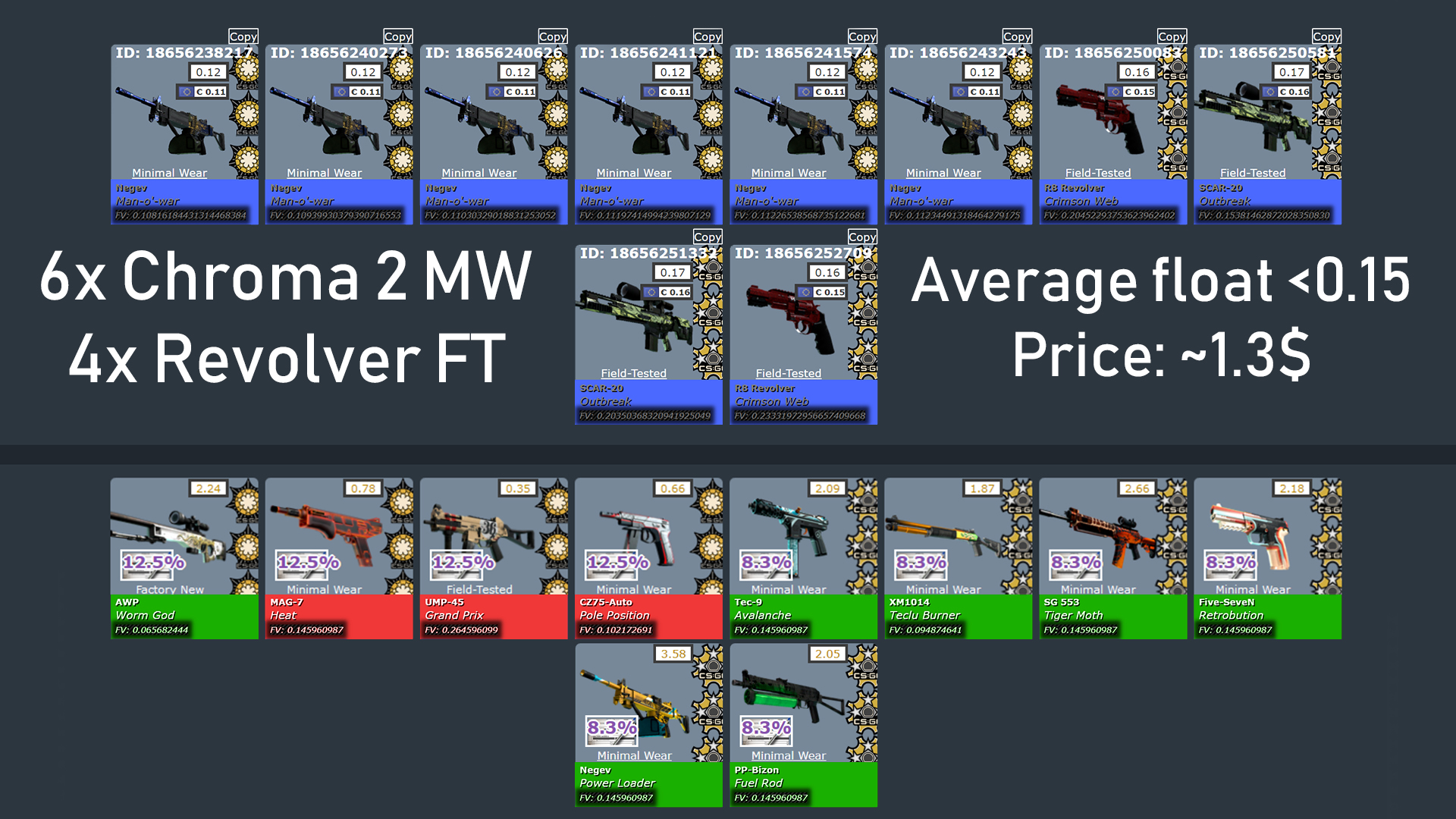BDP Engbu Insights
Your go-to source for the latest news and insights.
From Trash to Treasure: Transforming Your CSGO Inventory with Trade-Ups
Unlock hidden value in your CSGO inventory! Discover how trade-ups can turn your unwanted skins into coveted treasures.
Understanding CSGO Trade-Ups: A Complete Guide to Transforming Your Inventory
Counter-Strike: Global Offensive (CS:GO) trade-ups are a fascinating aspect of the game, allowing players to transform their existing skins into more valuable ones. Understanding the mechanics behind CSGO trade-ups is crucial for maximizing your inventory's potential. To engage in a trade-up, you need to have a selection of skins from your inventory that exceeds a set minimum value. The process involves selecting a defined number of skins, usually ten, and exchanging them for a single skin of higher rarity. It's essential to keep in mind that the outcome is partially based on luck, as the final product's value can range significantly depending on the rarity tier of the skins used in the trade-up.
To get started with your own CSGO trade-ups, it’s advisable to conduct thorough research on the current market trends and skin values. Tools such as trade calculators can help you identify profitable trade-up opportunities by predicting potential outcomes based on the skins you have. Additionally, communities on platforms like Steam and Discord often share tips and strategies for successful trading. Remember to always keep an updated list of skins and their values in mind, as the CS:GO marketplace is constantly evolving. By mastering the art of trade-ups, you can elevate your gaming experience and create a more desirable inventory.

Counter-Strike is a popular tactical first-person shooter game that has been captivating players since its inception. With the release of its latest iteration, players are eager to explore new gameplay mechanics and strategies. For those interested in the new features, you can check out CS2 Guess to get insights and tips.
Top 5 Tips for Successful Trade-Ups in CSGO: Turn Your Unwanted Skins into Profit
Trading in CSGO can be a rewarding experience, especially when it comes to turning your unwanted skins into profit. Here are the top 5 tips for successful trade-ups that can help you maximize your returns. First, always research the current market trends; knowing which skins are in demand can significantly influence your trade decisions. Utilize tools like Steam Analyst or skin price tracking websites to stay updated on skin values.
Second, consider the rarity and condition of your skins before initiating a trade. Trade-ups generally yield better results when using high-quality skins. As you plan your trades, make sure to calculate the potential profit from each trade-up using tools available online. Lastly, participating in community discussions can provide insights and tips from experienced traders, helping you refine your strategies further. Remember, patience is key in trading; take your time to find the best deals!
Is It Worth It? Evaluating the Risks and Rewards of CSGO Trade-Ups
When considering whether CSGO trade-ups are worth the potential risks, it's essential to weigh the rewards against the inherent uncertainties. Trade-ups in CSGO provide players with the chance to exchange lower-value skins for a higher-value one, but this process often requires a significant investment of in-game currency or items. The excitement of obtaining a rare skin can be exhilarating, but understanding the mechanics of probability is crucial. The trade-up contract success is determined by the combined value and rarity of the skins involved, and results can be unpredictable. For example, if you trade up a group of common skins, your odds of acquiring a desirable item may be slim, making it essential to do thorough research before investing.
On the flip side, the potential rewards of a successful CSGO trade-up can be substantial, turning a modest investment into a prized possession within the community. Players who have done their homework and strategized their trades can celebrate significant gains, not only in terms of monetary value but also in enhancing their gaming experience. It's important to note, however, that the market for CSGO skins can be volatile, with prices fluctuating often. Therefore, those interested in trade-ups should stay updated on current trends and market values. In conclusion, while the allure of high-reward trade-ups can be tempting, potential traders should approach with caution and a well-crafted plan to navigate these risks effectively.